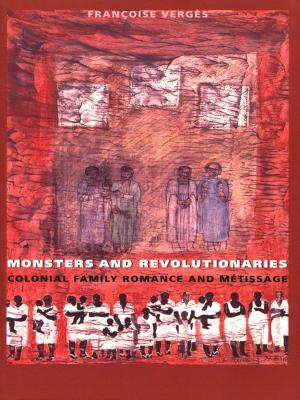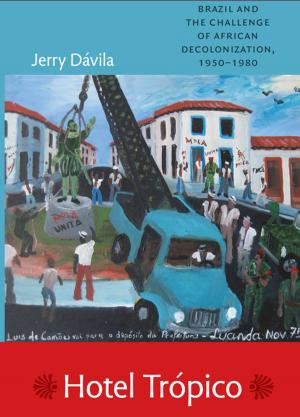Revolt of the Saints
Memory and Redemption in the Twilight of Brazilian Racial Democracy
Nonfiction, History, Americas, South America, Social & Cultural Studies, Social Science, Anthropology| Author: | John F. Collins | ISBN: | 9780822395706 |
| Publisher: | Duke University Press | Publication: | May 1, 2015 |
| Imprint: | Duke University Press Books | Language: | English |
| Author: | John F. Collins |
| ISBN: | 9780822395706 |
| Publisher: | Duke University Press |
| Publication: | May 1, 2015 |
| Imprint: | Duke University Press Books |
| Language: | English |
In 1985 the Pelourinho neighborhood in Salvador, Brazil was designated as a UNESCO World Heritage Site. Over the next decades, over 4,000 residents who failed to meet the state's definition of "proper Afro-Brazilianness" were expelled to make way for hotels, boutiques, NGOs, and other attractions. In Revolt of the Saints, John F. Collins explores the contested removal of the inhabitants of Brazil’s first capital and best-known site for Afro-Brazilian history, arguing that the neighborhood’s most recent reconstruction, begun in 1992 and supposedly intended to celebrate the Pelourinho's working-class citizens and their culture, revolves around gendered and racialized forms of making Brazil modern. He situates this focus on national origins and the commodification of residents' most intimate practices within a longer history of government and elite attempts to "improve" the citizenry’s racial stock even as these efforts take new form today. In this novel analysis of the overlaps of race, space, and history, Collins thus draws on state-citizen negotiations of everyday life to detail how residents’ responses to the attempt to market Afro-Brazilian culture and reimagine the nation’s foundations both illuminate and contribute to recent shifts in Brazil’s racial politics.
In 1985 the Pelourinho neighborhood in Salvador, Brazil was designated as a UNESCO World Heritage Site. Over the next decades, over 4,000 residents who failed to meet the state's definition of "proper Afro-Brazilianness" were expelled to make way for hotels, boutiques, NGOs, and other attractions. In Revolt of the Saints, John F. Collins explores the contested removal of the inhabitants of Brazil’s first capital and best-known site for Afro-Brazilian history, arguing that the neighborhood’s most recent reconstruction, begun in 1992 and supposedly intended to celebrate the Pelourinho's working-class citizens and their culture, revolves around gendered and racialized forms of making Brazil modern. He situates this focus on national origins and the commodification of residents' most intimate practices within a longer history of government and elite attempts to "improve" the citizenry’s racial stock even as these efforts take new form today. In this novel analysis of the overlaps of race, space, and history, Collins thus draws on state-citizen negotiations of everyday life to detail how residents’ responses to the attempt to market Afro-Brazilian culture and reimagine the nation’s foundations both illuminate and contribute to recent shifts in Brazil’s racial politics.















